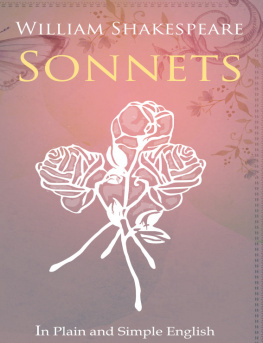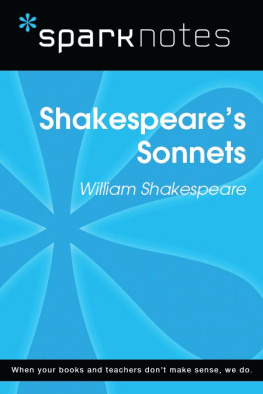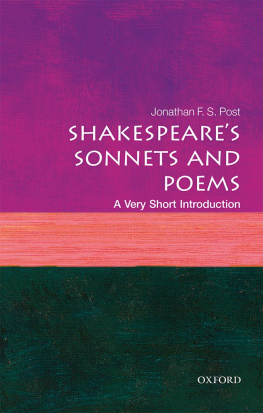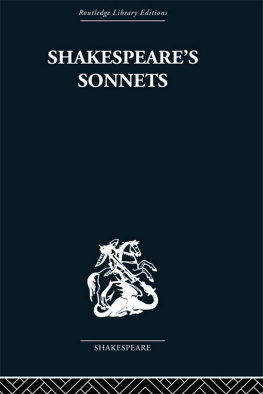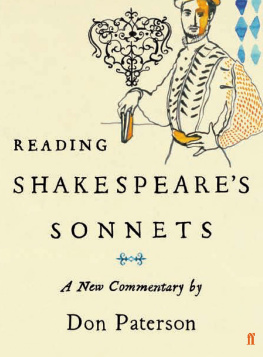SPEECH AND PERFORMANCE IN
SHAKESPEARE'S SONNETS AND PLAYS
David Schalkwyk offers a sustained reading of Shakespeare's sonnets in relation to his plays. He argues that the language of the sonnets is primarily performative rather than descriptive, and bases this distinction on the philosophy of Ludwig Wittgenstein and J. L. Austin. In a wide-ranging analysis of both the 1609 quarto of Shakespeare's sonnsets and the Petrarchan discourses in a selection of plays, Schalkwyk addresses such issues as embodiment and silencing, interiority and theatricality, inequalities of power, status, genderand desire, both in the published poems and on the stage and in the context of the early modern period. In a provocative discussion of the question of proper names and naming events in the sonnets and plays, the book seeks to reopen the question of the autobiographical nature of Shakespeare's sonnets.
DAVID SCHALKWYK is Associate Professor and Head of the Department of English Language and Literature at the University of Cape Town. He has published on Shakespeare, literary theory, philosophy and South African literature in Shakespeare Quarterly, English Literary Renaissance, the Journal of Aesthetics and Art Criticism, Pretexts, Linguistic Sciences, Textus and the Journal of Literary Studies.
SPEECH AND
PERFORMANCE
IN SHAKESPEARE'S
SONNETS AND PLAYS
DAVID SCHALKWYK
CAMBRIDGE UNIVERSITY PRESS Cambridge, New York, Melbourne, Madrid, Cape Town, Singapore, So Paulo
Cambridge University Press The Edinburgh Building, Cambridge CB2 2RU, United Kingdom
Published in the United States of America by Cambridge University Press, New York
www.cambridge.org Information on this title: www.cambridge.org /9780521811156
David Schalkwyk 2002
This book is in copyright. Subject to statutory exception and to the provision of relevant collective licensing agreements, no reproduction of any part may take place without the written permission of Cambridge University Press.
First published in print format 2002
ISBN-13 978-0-511-05809-7 eBook (Adobe Reader) ISBN-10 0-511-05809-8 eBook (Adobe Reader)
ISBN-13 978-0-521-81115-6 hardback ISBN-10 0-521-81115-5 hardback
Cambridge University Press has no responsibility for the persistence or accuracy of URLs for external or third-party internet websites referred to in this book, and does not guarantee that any content on such websites is, or will remain, accurate or appropriate.
To Christina, Andrew and James
Contents
| Acknowledgements page |
| Introduction: the sonnets |
| 1 | Performatives: the sonnets, Antony and Cleopatra and
As You Like It |
| 2 | Embodiment: the sonnets, Love's Labour's Lost, Romeo and
Juliet and Twelfth Night |
| 3 | Interiority: the sonnets, Hamlet and King Lear |
| 4 | Names: the sonnets, Romeo and Juliet, Troilus and
Cressida and Othello |
| 5 | Transformations: the sonnets and All's Well that Ends Well |
| Conclusion |
| Bibliography |
| Index |
-vii-
Acknowledgements
This book began as an idea sparked by a paper given by John Roe. The germ of that idea was nurtured in the seminars on Shakespeare's sonnets at the meetings of the Shakespeare Association of America in Albuquerque in 1994 and the World Shakespeare Congress in Los Angeles in 1996, and took root during my tenure as a Solmsen Research Fellow at the Humanities Institute of the University of Wisconsin in Madison, in 1999. I owe more than I can express to Lars Engle and Heather Dubrow, who ran the respective seminars, fortheirhelp, encouragement and acute criticism throughout the project. Lars got me to take the sonnets seriously; Heather enabled me to pursue that seriousness in the ideal collegial environment of the Humanities Institute in Madison. Both have been exceptionally generous colleagues and friends.
More generally, I wish to thank Jacques Berthoud, under whose guidance I first began to explore the relevance of Wittgenstein to literature. I have benefited in equal measure from his boundless generosity and toughness of mind overthe past twenty years. I owe a great deal of personal and intellectual debt for their selfless engagement and readiness to read parts of the manuscript to Jacques Lezra, Lesley Marx, Tony Parr and Susanne Wofford. Anston Bosman, Jonathan Crewe, John Higgins, Stephen Greenblatt, Randy McCloud, the late Nick Visser and Robert Weimann all contributed to the formation of this project through their conversation and comments. Sarah Stanton of Cambridge University Press has offered patient guidance and advice, and I owe the two Press readers a great deal of thanks for their acute and helpful comments on the original typescript.
An earlier version of chapter 1 appeared in Shakespeare Quarterly (1998), a version of chapter 2 in Shakespeare Quarterly (1994), and some paragraphs from the introduction in Shakespeare Quarterly (1999).
The research for this book was generously supported by a grant from the National Research Foundation of South Africa. I also wish to thank
-viii-
the University of Cape Town and my colleagues in the English Department forproviding the collegial support that made this project possible. Most important is the generosity, friendship and encouragement that I received from the members of the Institute for Research in the Humanities at the University of Wisconsin, in Madison. My special thanks go to the director, Paul Boyer, who made our trip to Madison a voyage of discovery and delight. Christina, Andrew and James know, I hope, how much of this book is theirs.
Note
The text of Shakespeare's sonnets used in this book is the facsimile of the 1609 Quarto reproduced in Shakespeare's Sonnets, ed. Stephen Booth (New Haven, CT and London: Yale University Press, 1978). Quotations from the plays are from The Oxford Shakespeare, ed. Stanley Wells and Gary Taylor (Oxford: Oxford University Press, 1987).
-ix-
Introduction:
the sonnets
Why are there proper names in Shakespeare's dramatic works, but none in Shakespeare's sonnets? What roles do proper names (or the absence of proper names) play in these poems, and how are such roles related to the varieties of language used in the sonnets and Shakespeare's plays? Are the sonnets primarily concerned with description, or is their language chiefly performative? And how are these questions about language, proper names and genre conceptually related to the life of the author and the historical conditions under which the texts were produced?
These questions provide a framework for the analysis of Shakespeare's sonnets in this book, which takes as the central condition of the sonnets the fact that their author was also the period's foremost dramatist. Austin's status within literary theory never recovered
____________________
| 1 | This is not to claim that there were no other dramatists who were also substantial poets. Marston, Chapman and, especially, Jonson, were both poets and dramatists, but none of them wrote substantial sonnet sequences, noris theirpoetry informed by a self-consciousness of the common player's lowly social position. |
| 2 | See Mary Louise Pratt, Towards a Speech-Act Theory of Literary Discourse (Bloomington, IN: Indiana University Press, 1977). Fora pioneering application of these two philosophers' work to Shakespeare, see Keir Elam, |


